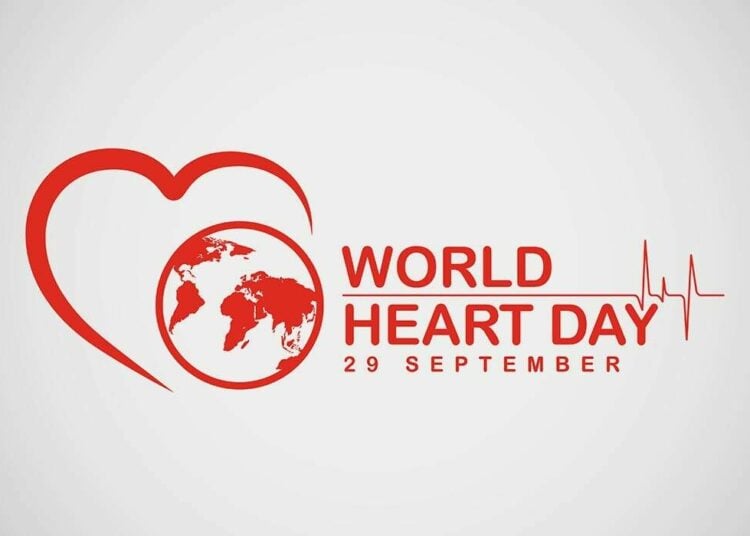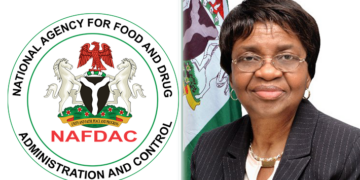As Nigeria joins the rest of the world to mark World Heart Day 2025, the call to protect the citizens’ hearts has never been louder. With cardiovascular diseases (CVDs) now among the leading causes of death in the country, health advocates said the rising toll is no longer just a medical problem, it is a national emergency.
Corporate Accountability and Public Participation Africa (CAPPA) has urged federal and state governments to urgently adopt bold, healthy food and tobacco control policies to stem the crisis.
The group is pushing for mandatory salt reduction in processed foods, higher sugar-sweetened beverage (SSB) taxes, bold warning labels on ultra-processed foods, restrictions on junk food advertising to children, and a 100 per cent increase in tobacco taxes.
“These are proven, cost-effective interventions that will save lives and protect families from the devastating health and financial burdens of heart disease,” said CAPPA Executive Director, Akinbode Oluwafemi.
He stressed that tax revenues must be reinvested into strengthening Nigeria’s fragile health system, where access to cardiac care remains a privilege for the few.
Behind the statistics are countless Nigerian families struggling to cope with the cost of treatment. The Nigerian Cardiac Society reports that about one-third of Nigerian adults live with high blood pressure, sometimes rising to 40 per cent in certain regions. Alarmingly, many are unaware of their condition until complications set in.
Treatment is also financially crippling, far beyond the reach of ordinary citizens. With only 80 cardiac surgeons serving over 200 million people, access to life-saving care remains painfully limited.
World Heart Day is commemorated every 29 September, to raise awareness of cardiovascular diseases (CVD) and the importance of taking care of the heart.
“From individuals, families and schools to community groups and governments, we work together to make equitable heart health a priority and drive change across the globe,” said World Heart Federation (WHF), warning that one in five people will die prematurely from the condition if urgent preventive measures are not taken.
According to the WHF, CVD continues to claim more lives annually than cancer and chronic respiratory diseases combined, despite evidence showing that up to 80 per cent of heart disease and stroke cases can be prevented through healthy lifestyle choices, early detection, and equitable access to care.
The federation has urged individuals, families, communities, and governments to prioritise heart health. This year’s event carries added significance as it marks the 25th anniversary of the global awareness campaign. The 2025 theme, “Don’t Miss a Beat,” underscores the emotional and social costs of CVD, emphasizing how premature deaths rob families and communities of precious time with loved ones.
“Loved ones around the world are missing out on time they should still have to spend together due to early deaths from CVD. This is why we are calling on the world: Don’t Miss a Beat,” WHF said in a statement.
The organization called for collective action to tackle risk factors such as unhealthy diets, tobacco use, physical inactivity, and poor access to healthcare services. It also urged governments to integrate heart health into national health policies, especially in low- and middle-income countries where the burden of CVD is rising.
The World Health Organisation (WHO) estimates that cardiovascular diseases claim 17.9 million lives every year, with more than three-quarters of these deaths occurring in low- and middle-income countries like Nigeria. Tobacco alone accounts for one in five of these deaths, with 1.9 million people worldwide dying annually from tobacco-induced heart disease.
Smokeless tobacco and e-cigarettes, increasingly popular among young Nigerians, also raise blood pressure and the risk of stroke, experts warn.
However, the Federal Ministry of Health said it has developed guidelines for the prevention and management of hypertension, diabetes, and sickle cell disease, and is working with partners to expand screening and treatment through the National Hypertension Control Initiative.
The Ministry said it has also tightened regulations on trans fats, a major risk factor for heart disease, and is implementing tobacco control laws.
But implementation remains weak, and public health advocates insist that without stronger policies, Nigerians will continue to suffer preventable deaths.
Doctors remind Nigerians that most heart diseases are preventable. Eating a diet rich in fruits and vegetables, reducing salt and sugar intake, exercising regularly, quitting tobacco, limiting alcohol, and monitoring blood pressure and blood sugar can significantly cut risks.
Experts said the country’s fight against heart disease will not be won in operating theatres, but in kitchens, schools, markets, and policy chambers.
Now in its 25th year, World Heart Day continues to serve as a rallying point for advocacy, education, and action to reduce preventable deaths and ensure healthier, longer lives for millions of people worldwide.





